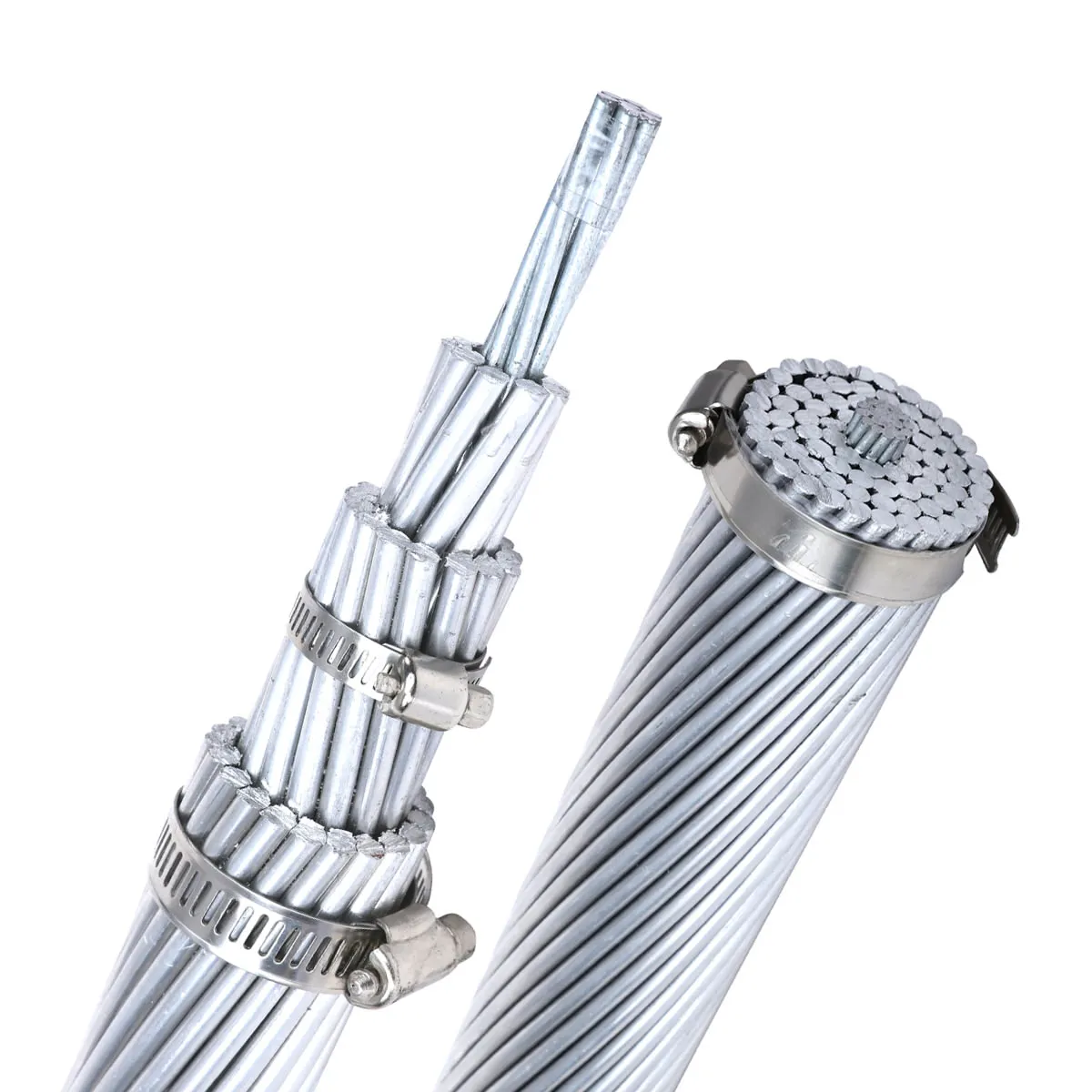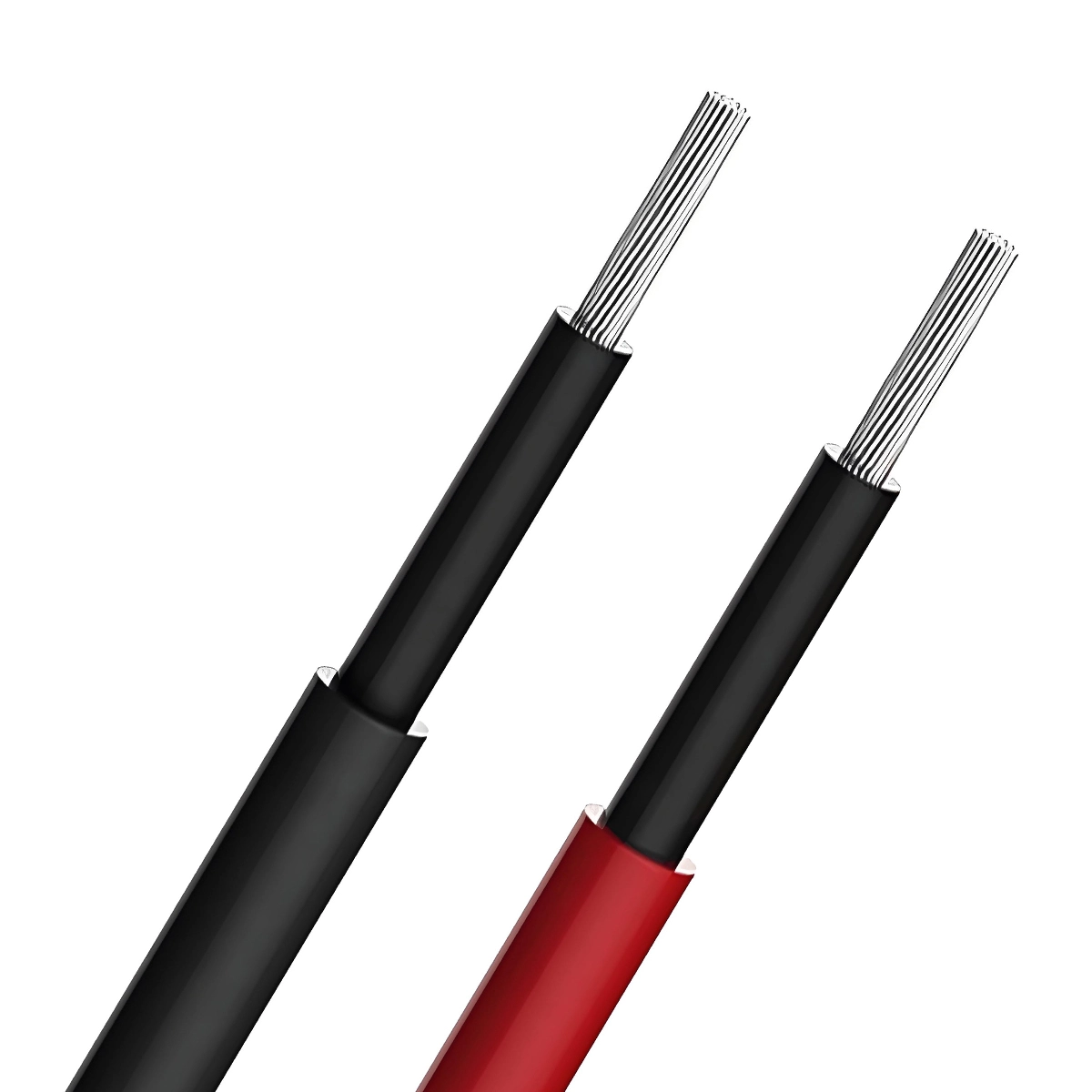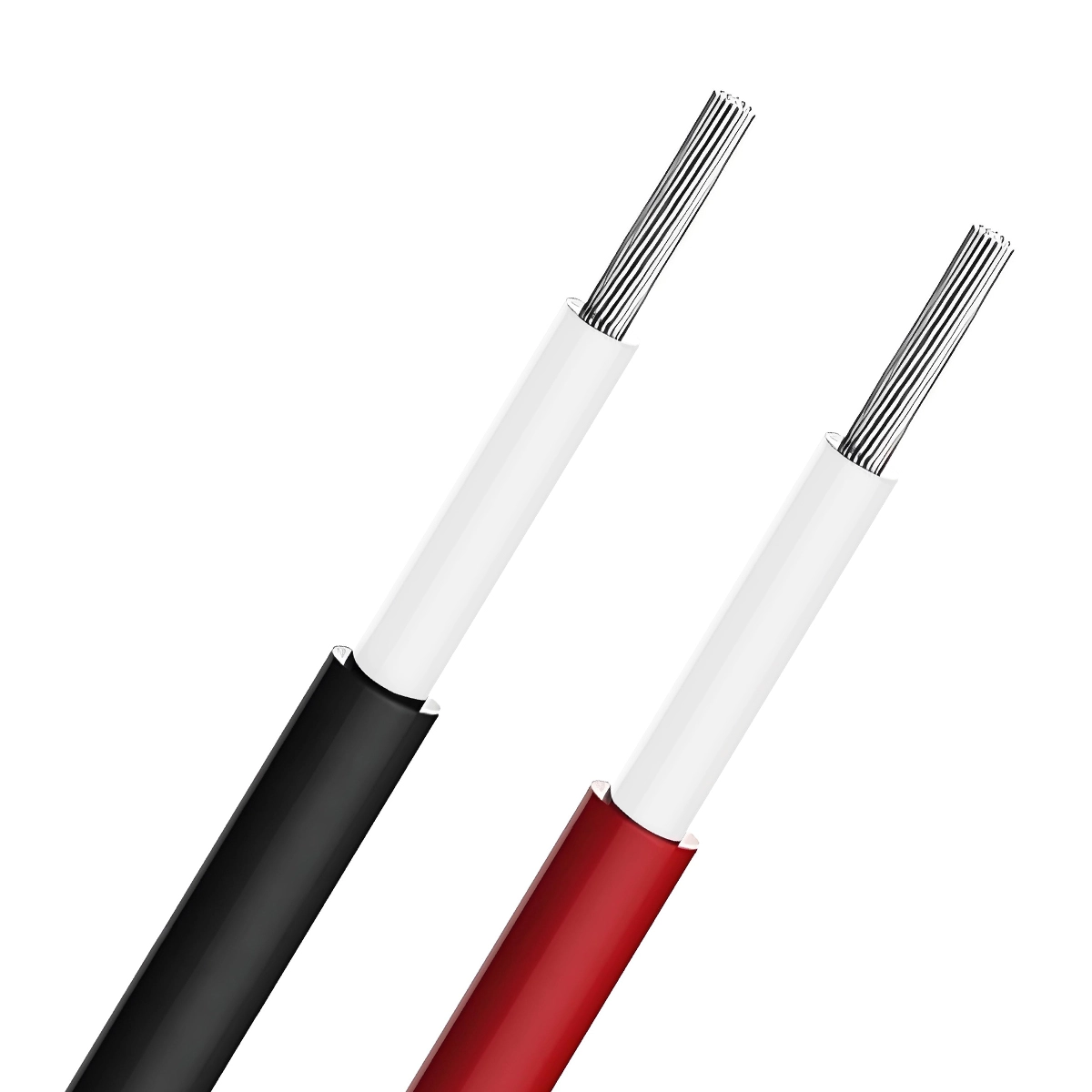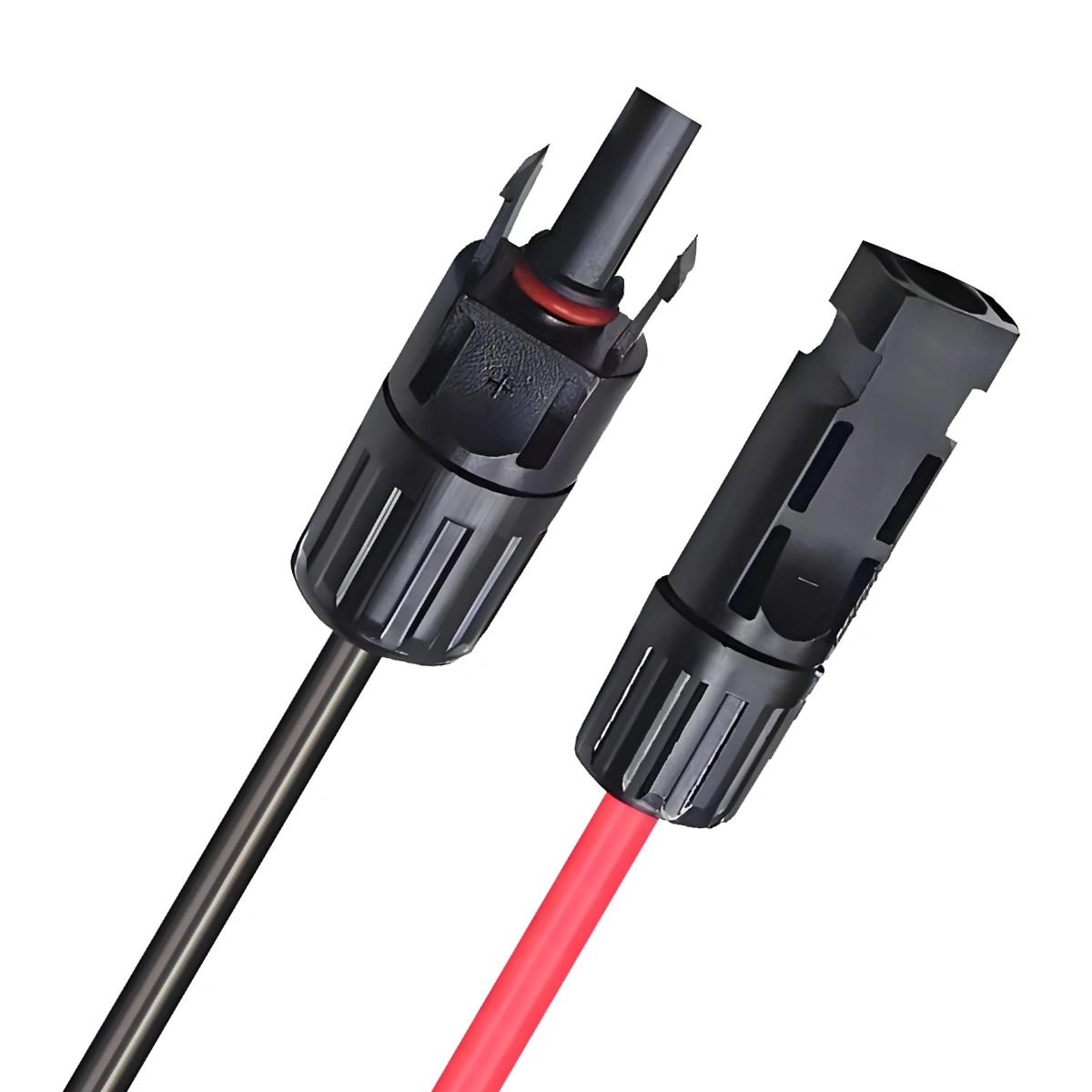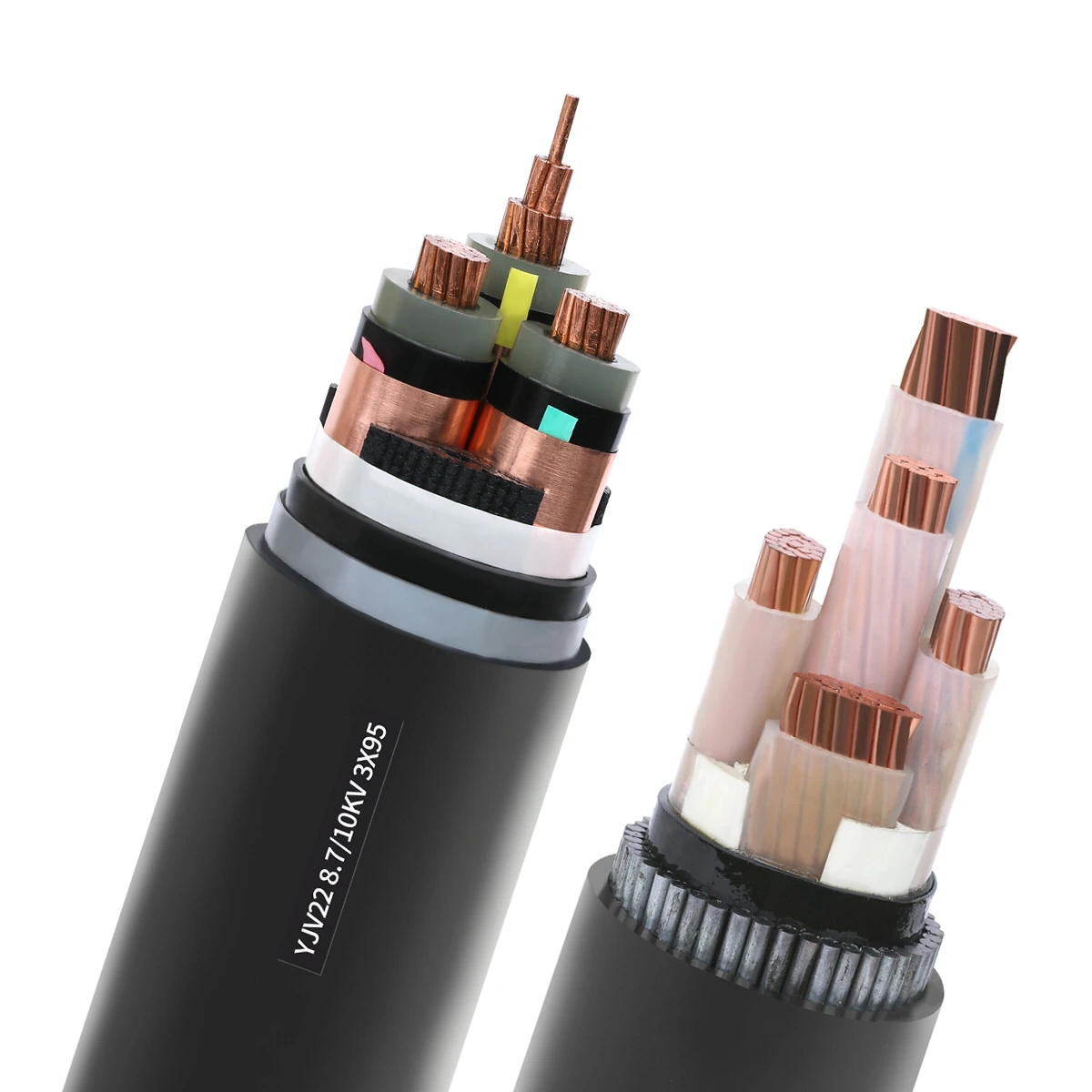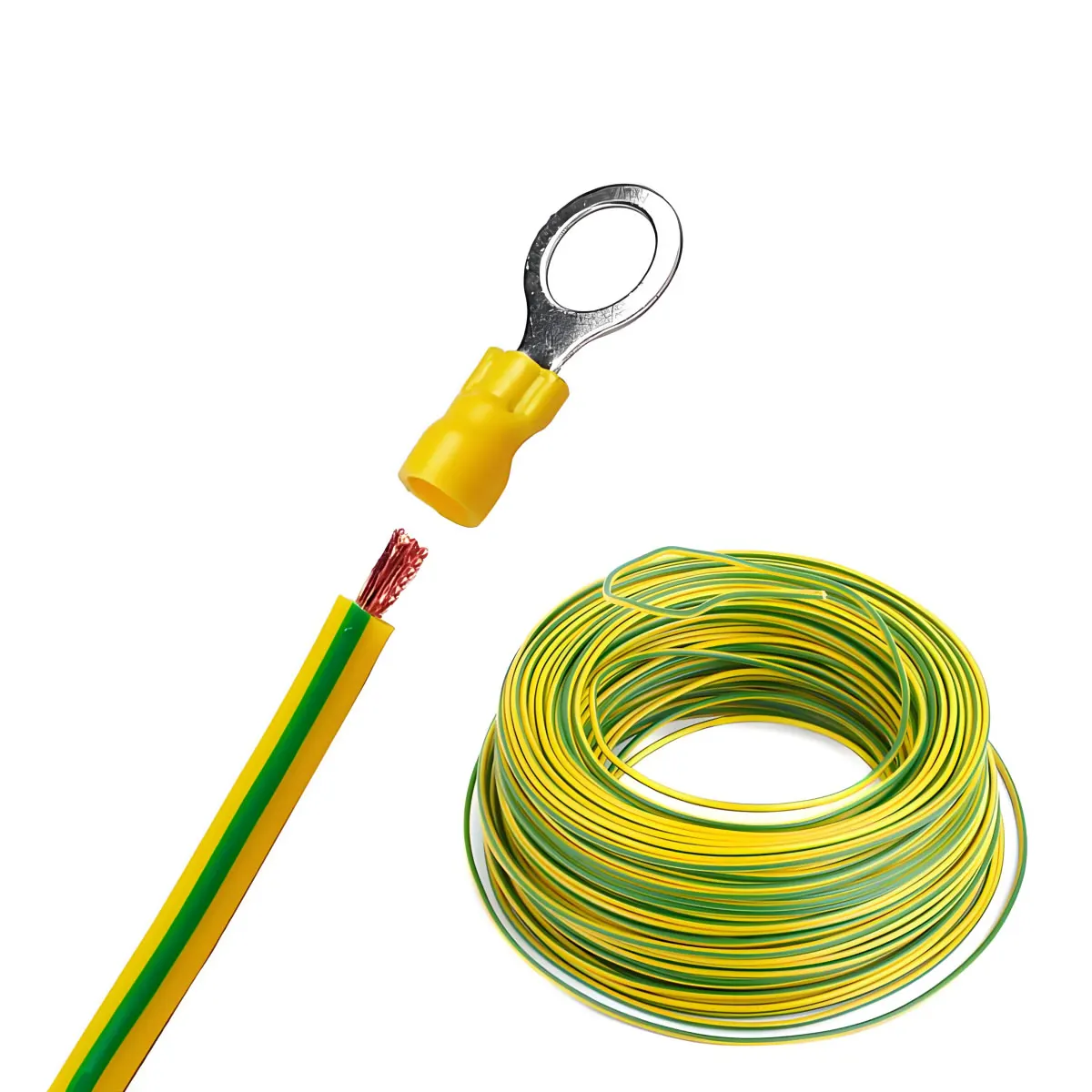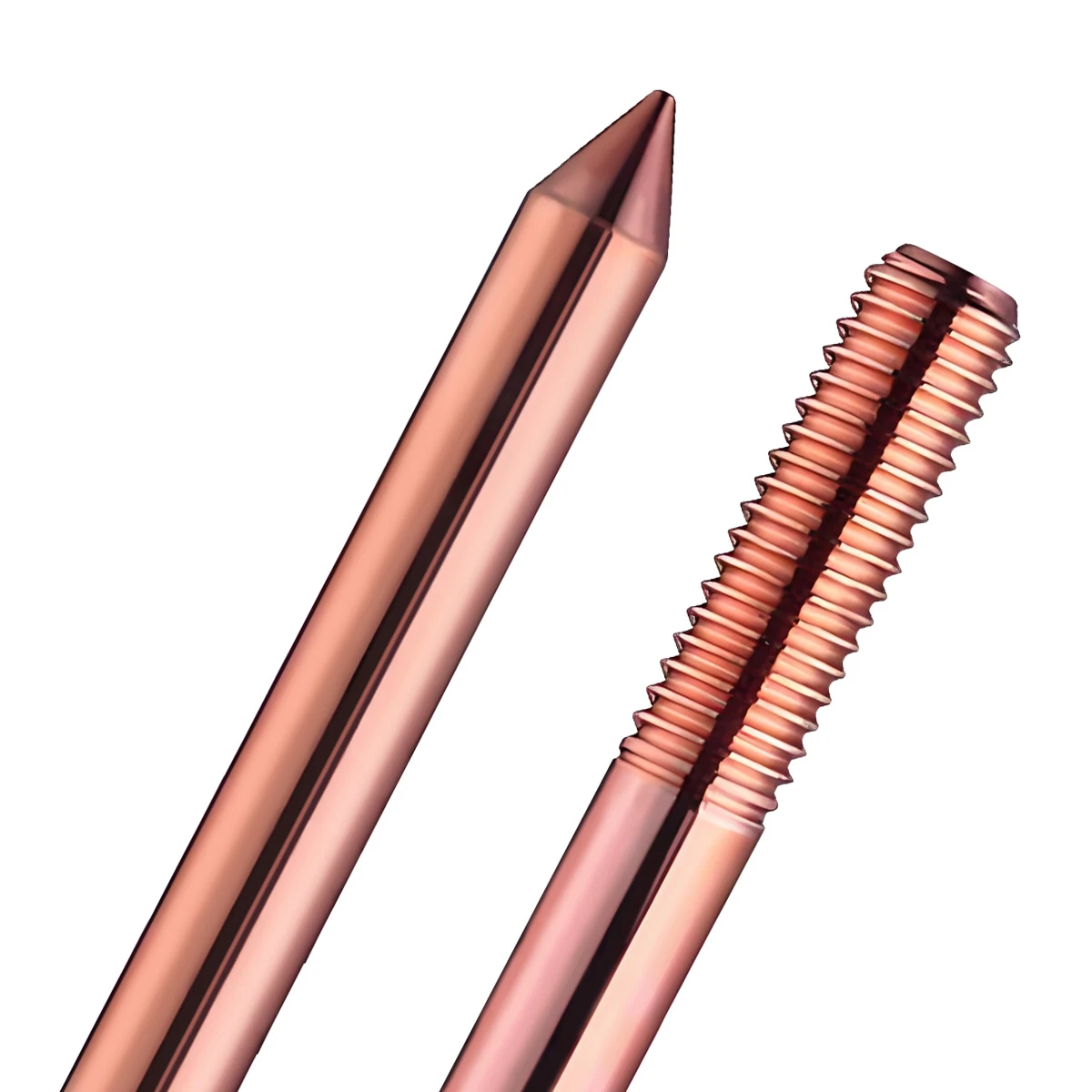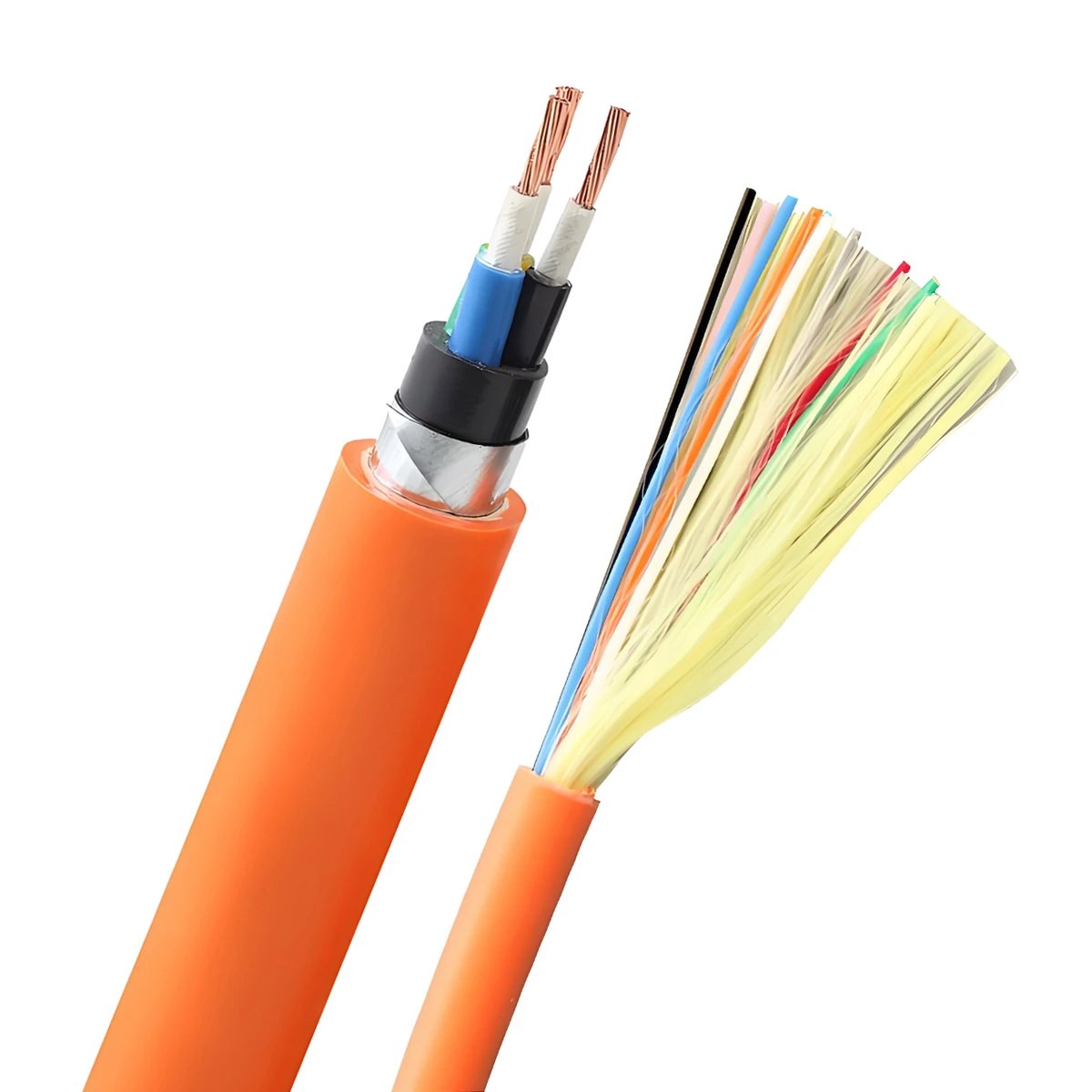Повітряний кабель
Overhead cable can integrate the electricity generated by solar power systems into the grid. ZMS може надати необхідні повітряні кабелі, такі як ACSR, ВІДКРИВАЄТЬСЯ, AAC, and AAAC for various photovoltaic power generation projects.
In grid-connected solar power systems, the type of overhead cable used depends on specific installation requirements, such as voltage level, current-carrying capacity, mechanical strength, and environmental conditions.
From DC cables used for solar panels to AC cables used for inverter output, and finally to the overhead or underground cables that connect to the grid, ZMS’s professional team will comprehensively consider the scale of the solar project, geographical location, environmental conditions, and grid connection requirements to tailor the most suitable power cabling solution for you.
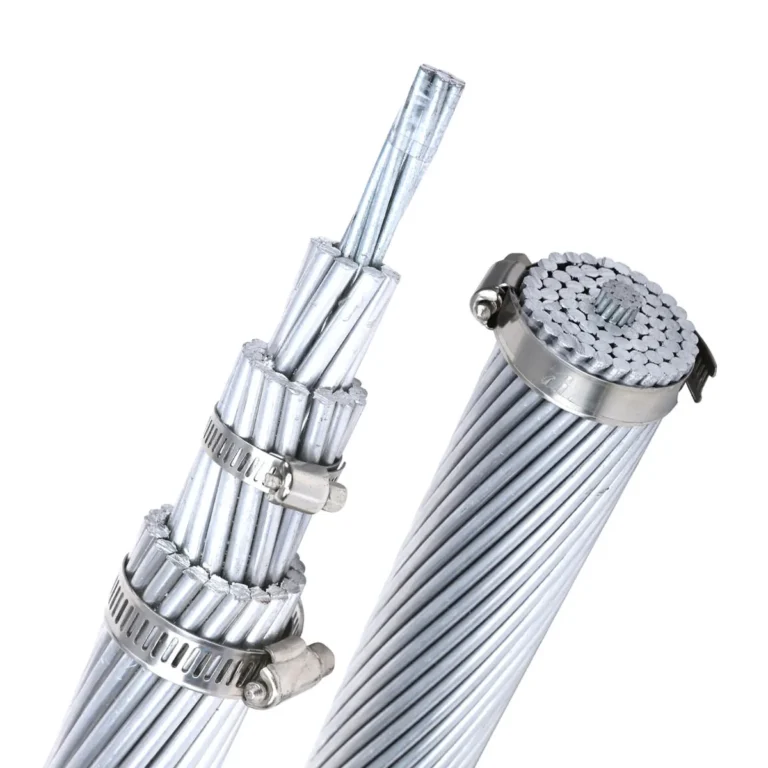

AAC (All Aluminum Conductor)
Structure:
AAC is composed of one or more strands of aluminum wire. These conductors are made from electrolytically refined aluminum with a minimum purity of 99.7%. The construction follows the standards of EN 60889 Type AL1 according to BS 215.
Characteristics:
AAC conductors are highly conductive and primarily used in urban areas for low, medium, and high voltage overhead lines where spans are short. They exhibit excellent corrosion resistance, making them ideal for coastal regions.
Standards:
ASTM B 230, ASTM B 231, TS IEC 1089, DIN48201, and BS 215.
AAAC (All Aluminum Alloy Conductor)
Structure:
AAAC cables consist of aluminum alloy wires concentrically stranded. They are made from a magnesium-silicon-type aluminum alloy (alloy 6201) with magnesium content between 0.6-0.9% and silicon content between 0.5-0.9%. These conductors are designed to be highly conductive with a minimum of 53% IACS.
Characteristics:
AAAC conductors offer improved strength, weight, і електричні властивості порівняно з AAC і ACSR. Вони мають кращі властивості вертикального розтягування та підвищену стійкість до корозії, що робить їх придатними для ліній електропередач середньої та високої напруги. Їх менші криголамні навантаження вигідні в регіонах з низьким ожеледицею та вітровим навантаженням. Провідники AAAC можна налаштувати відповідно до конкретних потреб застосування та вимог замовника.
Standards:
ASTM B 230, ASTM B 231, TS IEC 1089, DIN48201, and BS 215.
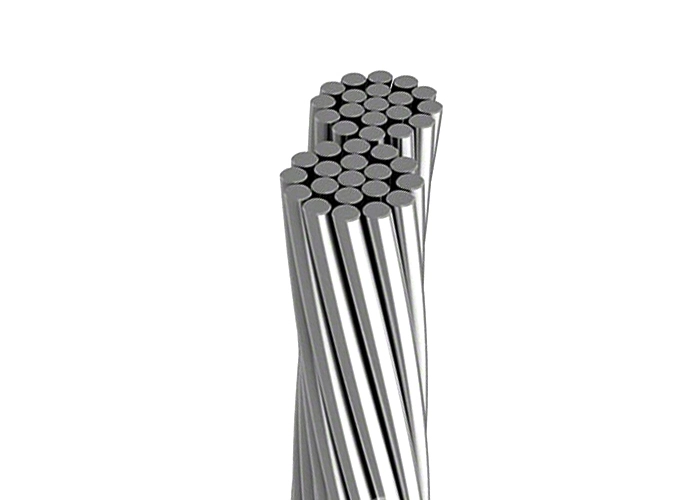
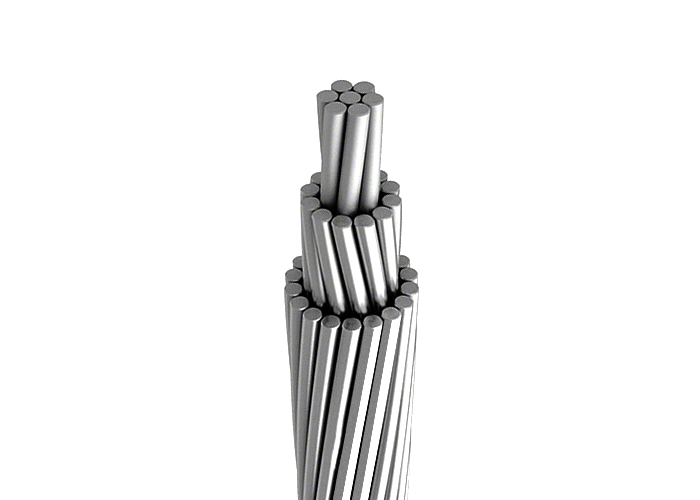
ACSR (Алюмінієвий провідник, армований сталлю)
Structure:
Провідники ACSR складаються з кількох алюмінієвих і оцинкованих сталевих провідників, скручених концентричними шарами. Сердечник виготовлений з оцинкованої сталі, який може складатися з 1, 7, або 19 дроти, і оточений алюмінієвими нитками. Серцевий дріт для ACSR доступний з класом A, Б, або С цинкування.
Characteristics:
Кабелі ACSR є універсальними та підходять для ліній електропередачі на всіх рівнях напруги, including challenging terrains such as rivers and ravines. By adjusting the proportions of aluminum and steel, specific properties for various applications can be achieved. Increasing the steel content enhances antistatic properties, while more aluminum content increases current carrying capacity.
Standards:
ASTM B 230, ASTM B 231, TS IEC 1089, DIN48201, and BS 215.
Кабельна продукція ZMS
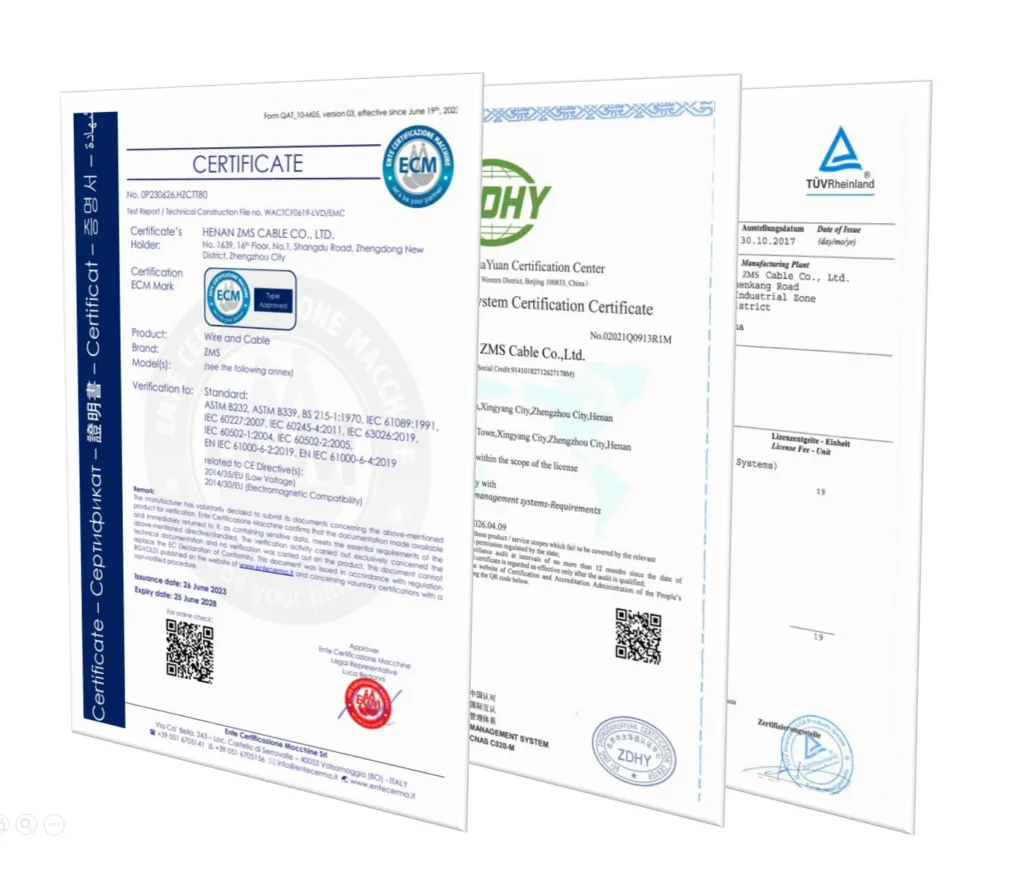
FAQ
Який повітряний кабель використовувати в системах сонячної енергії?
У підключених до мережі фотоелектричних системах виробництва електроенергії, як тільки згенерована потужність постійного струму перетворюється на потужність змінного струму за допомогою інвертора та інтегрується в мережу змінного струму, Передача електроенергії часто здійснюється по повітряних лініях. Типово, Процес підключення до мережі фотоелектричних систем виробництва електроенергії може відбуватися за наступними сценаріями:
Пряме підключення
Для малих розподілених фотоелектричних систем виробництва електроенергії, наприклад фотоелектричні установки на дахах житлових будинків, постійний струм можна безпосередньо перетворити на змінний струм через інвертор, а потім підключити до низьковольтної мережі через розподільні лінії. В даному випадку, underground low-voltage cables and overhead insulated cables like ABC cables can be used.
Підключення через коробкові трансформатори або інтеграцію підстанції
Фотоелектричні електростанції середнього або комерційного масштабу можуть використовувати коробкові підстанції (ящик трансформатори) для перетворення генерованої енергії постійного струму в потужність змінного струму, придатну для інтеграції в мережу через інвертор, а потім підвищити напругу через коробковий трансформатор до рівня напруги електромережі, перед підключенням до повітряних ліній.
Для великих наземних фотоелектричних електростанцій зазвичай потрібен трансформатор для підвищення напруги до більш високого рівня для ефективної передачі. В даному випадку, живлення підключено безпосередньо до підстанції, який потім розподіляє його до повітряних мереж високої або надвисокої напруги.
У цих двох сценаріях, якщо відстань від електростанції до точки підключення до мережі відносно коротка, а навантаження невелике, AAC cable could be an economical choice. Для середніх дистанцій або там, де потрібна краща фізична працездатність, AAAC cable may be a better option. Для передачі на великі відстані або там, де потрібні спеціальні вимоги до міцності кабелю, особливо коли повітряні лінії повинні перетинати складний рельєф або витримувати екстремальні погодні умови, ACSR conductor will be the most suitable choice.
What Are the Differences between AAC, AAAC, and ACSR Cables?
AAC: All-Aluminum Conductor (AAC) cables are relatively low-cost, lightweight, and have good conductivity, making them suitable for short-distance transmission and light load conditions. Проте, their strength is relatively low, with limited tensile capability, які можуть бути непридатними для великих відстаней або ситуацій, що вимагають високої механічної міцності.
AAAC: У порівнянні з AAC, Провідник із повністю алюмінієвого сплаву (AAAC) кабелі мають підвищену механічну міцність, краща міцність на розрив, і стійкість до корозії, зберігаючи хорошу провідність. Це робить AAAC більш придатним для ліній електропередач середньої довжини та середовищ з певними вимогами до механічної міцності, хоча вартість може бути трохи вищою, ніж AAC.
ACSR: Провідник, армований алюмінієвою сталлю (ACSR) кабелі поєднують чудову провідність алюмінію з високою міцністю сталі. Вони особливо підходять для далеких перевезень, важке навантаження, або лінії електропередач із жорсткими вимогами до механічної міцності. Кабелі ACSR можуть ефективно витримувати шторми, снігові навантаження, і натяг лінії, але вони відносно дорожчі.
У сонячних системах виробництва електроенергії, the choice between AAC, AAAC, or ACSR cables mainly depends on the system’s design, transmission distance, load requirements, and cost-benefit analysis. For short-distance and light load power transmission, AAC can be selected. For medium distances or where better physical performance is needed, AAAC is suitable. For long-distance transmission or complex environmental conditions, ACSR is usually the preferred choice.
What Factors Should Be Considered When Selecting Overhead Cables for PV Power Systems?
When selecting overhead lines for photovoltaic power generation systems, several key factors must be considered to ensure the system’s safety, ефективність, and long-term reliability:
Environmental Conditions: Evaluate the climate conditions of the installation site, including wind speed, rainfall, temperature range, ice load, and salt spray corrosion. Choose overhead cable types and specifications that can withstand these environmental impacts.
Voltage Level and Current Carrying Capacity: Select cables with the appropriate voltage level and sufficient current carrying capacity based on the output power of the photovoltaic power generation system and grid connection requirements to ensure safe and lossless power transmission.
Тип провідника: Consider using AAC, AAAC, or ACSR conductors based on transmission distance, load requirements, and cost-benefit analysis. For low-voltage transmission, use insulated cables such as PVC or XLPE insulated cables.
Route Planning: Follow overhead line route selection principles, such as shortening the path as much as possible, reducing corners, avoiding potential obstacles and hazardous areas, ensuring line stability, and ease of maintenance.
Mechanical Strength and Durability: Choose cables that can withstand tension, wind pressure, and other mechanical stresses. For long-distance transmission or harsh environments, high mechanical strength ACSR may be the better choice.
Installation and Maintenance: Consider the ease of installation, maintenance costs, and potential future expansion needs. Choose cable types that are easy to install and maintain.
Safety: Ensure that overhead cables and accessories comply with local safety standards and regulations, including lightning protection and grounding requirements, to prevent electrical fires and electric shock risks.
Cost-Effectiveness: Conduct a comprehensive evaluation of the costs and benefits of different overhead power cable solutions, including initial investment, operational maintenance costs, and expected lifespan, to make the most economical and reasonable decision.
Compatibility and Compliance: Переконайтеся, що вибраний повітряний кабель відповідає вихідній потужності фотоелектричної системи та відповідає національним або регіональним стандартам електробезпеки та вимогам до підключення до мережі..
Майбутнє розширення: Розглянемо потенційне розширення Сонячної системи. Вибирайте кабелі з деякою надлишковістю, щоб полегшити зручне оновлення при збільшенні потужності генерації або вдосконаленні системи в майбутньому.
Остаточний вибір кабелю повинен ґрунтуватися на фактичній ситуації конкретного проекту, включаючи фактори навколишнього середовища, бюджетні обмеження, стандарти безпеки, і вимоги до мережі. ZMS може надати комплексне кабельне рішення для вашого проекту виробництва сонячної енергії, допомагає спростити процес реалізації проекту, скоротити терміни будівництва, та ефективно контролювати витрати.
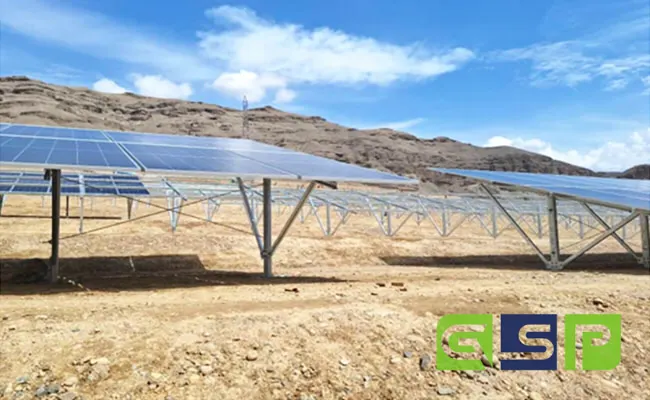
Основні моменти проекту
ЗМС об’єднався з Зелена державна влада (GSP), піонер в інфраструктурі відновлюваної енергетики, облаштувати монумент 10 Фотоелектричний проект MWP в Кабулі, Афганістан.
ZMS всебічно проаналізувала PV проект і надала його 1Сонячні кабелі X10 і 1X6 H1Z2Z2-K, 3Кабелі LV X300, 3Кабелі X300 MV, а також ACSR 185/30 повітряні кабелі. Доповнювали їх такі життєво важливі аксесуари, як фотоелектричні роз’єми та ретельно підібрані ящики для інструментів.
Прагнення ZMS до якості та надійності сприяло плавному встановленню та ефективності експлуатації, внесок у стійку енергетичну інфраструктуру регіону.
Служба ZMS
Індивідуальне виробництво
We understand that every customer's needs are unique. тому, ми пропонуємо персоналізовані послуги з налаштування сонячних кабелів, адаптація кожної деталі від специфікацій кабелю до інтерфейсів підключення відповідно до конкретних вимог вашого проекту, забезпечення максимальної сумісності та ефективності.
Глобальна логістика швидкого реагування
За підтримки нашої глобальної логістичної мережі, ZMS гарантує, що ваші фотоелектричні кабелі будуть безпечно та швидко доставлені в будь-який куточок світу. Наша професійна логістична команда контролює кожен етап транспортування, щоб забезпечити своєчасну доставку ваших товарів.
Технічна підтримка
ZMS's technical support team is always on standby. З якими б технічними труднощами ви не зіткнулися, ми можемо надати швидку відповідь і професійні рішення, гарантуючи безтурботний досвід користувача.
Зелене виробництво
Наші сонячні кабелі та аксесуари суворо дотримуються екологічних стандартів у процесі виробництва, мінімізація їх впливу на навколишнє середовище. Вибравши ZMS, ви не лише інвестуєте у високоякісні фотоелектричні кабелі, а й робите внесок у сталий розвиток планети.

